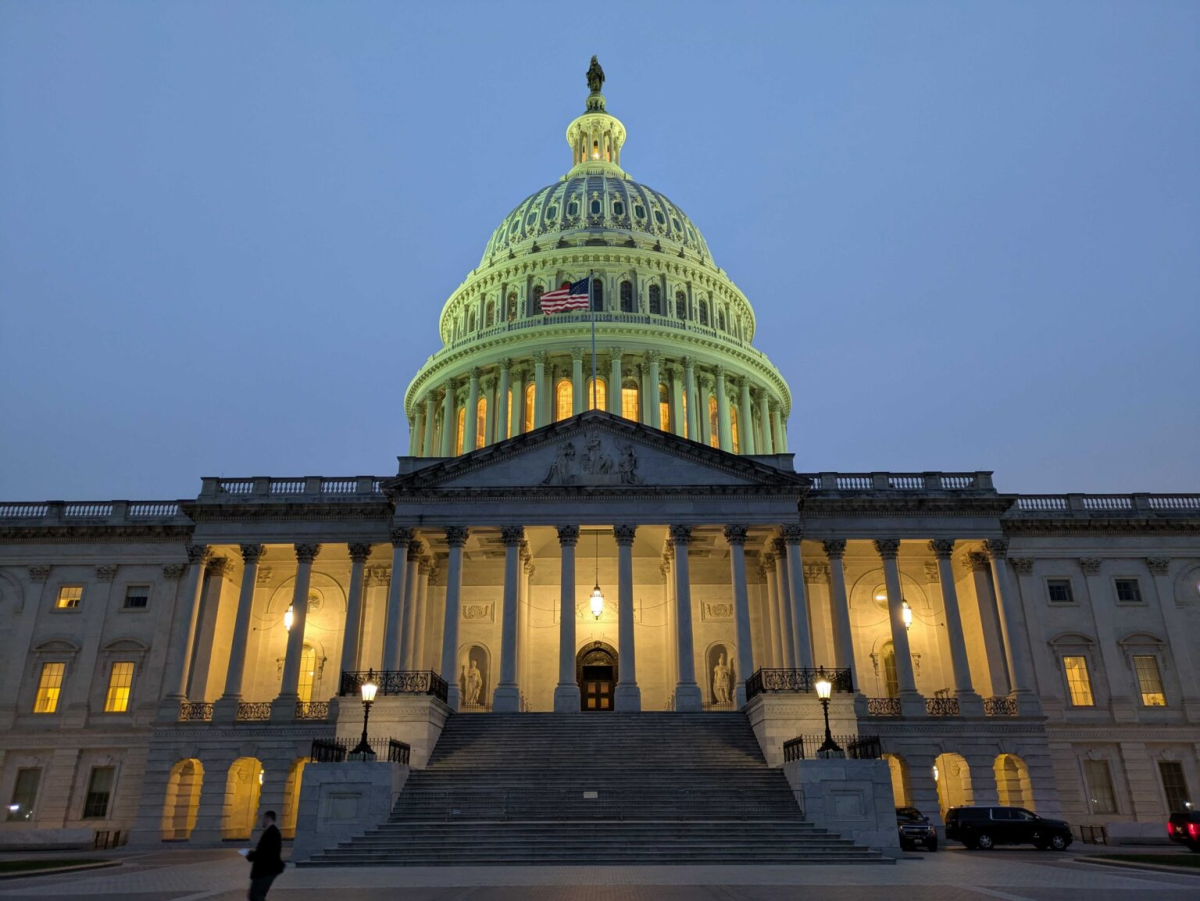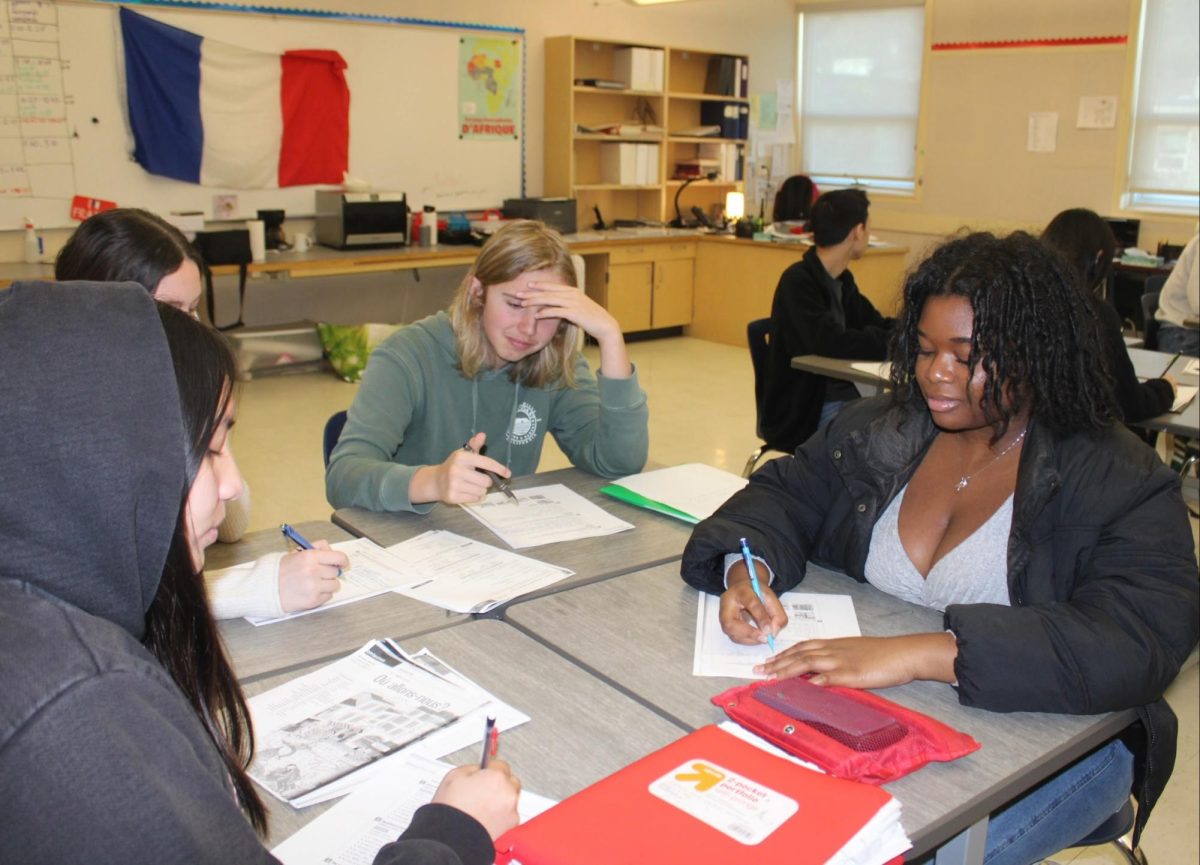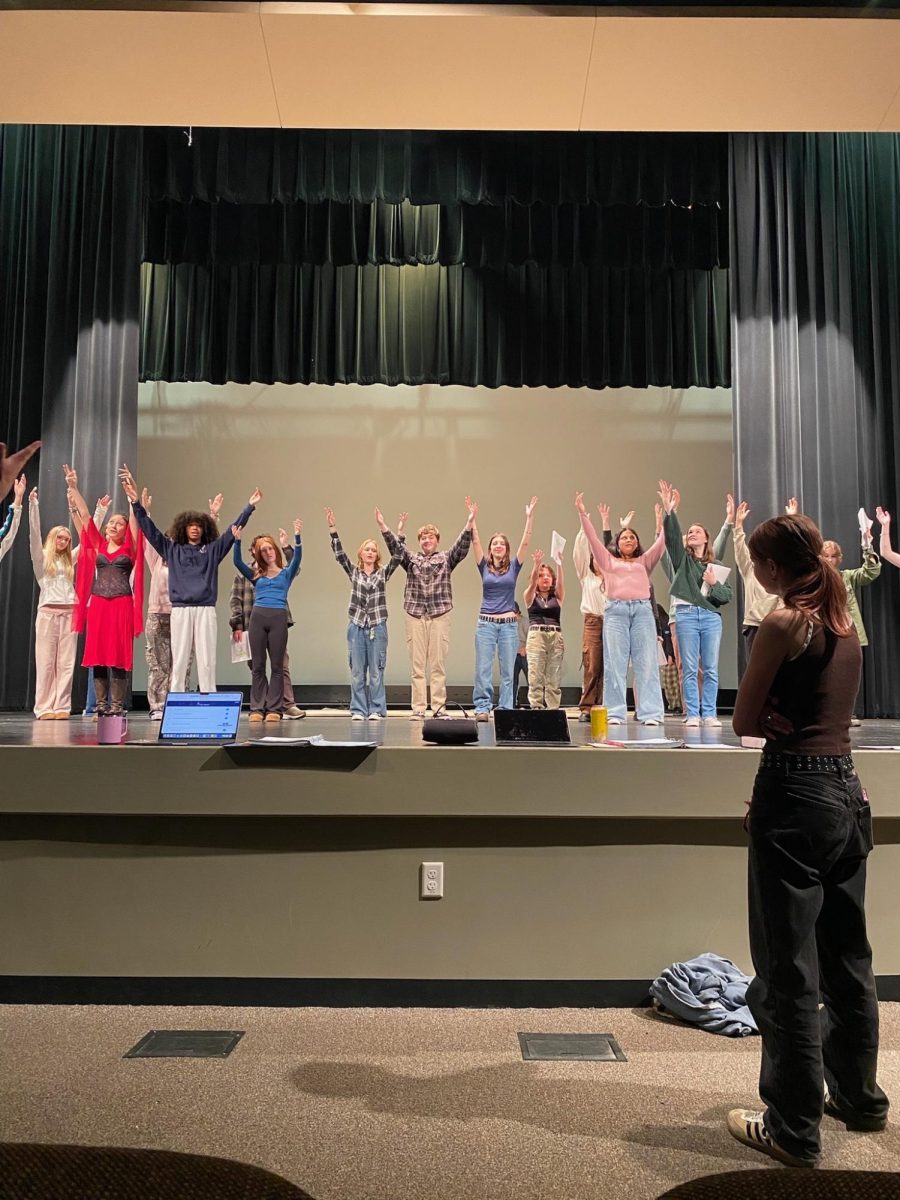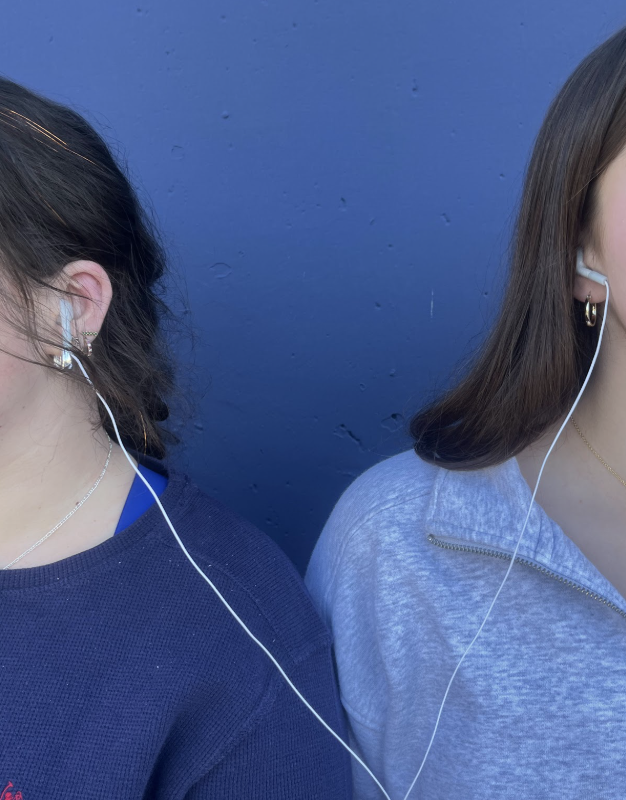Rain, shine, or snow, English teacher Patricia O’Brien has a tradition: starting off each class with a student reciting a poem, either from memory or just from a paper.
O’Brien explains, “One of my favorite poets, Billy Collins, suggested when he became poet laureate more than a few years ago, to have students read a poem a day. And not even to analyze, or talk about the meaning, but just to hear the sounds of poetry, to bring awareness to poetry in the world. Many people think poetry is this elite thing that only certain people read, and he wanted to welcome everyone in.”
This semester, senior Miranda Craig, one of O’Brien’s AP Literature students, picked “She Sweeps With Many-Colored Brooms” by Emily Dickinson, a description of a housewife sweeping with colorful brooms, leaving streaks of color everywhere- an allusion to sunset. Last semester, Craig picked “The Sun” by Mary Oliver, a serene commentary on the beauty of the sun and how we don’t appreciate the simple things enough. Craig says, “Both of the poems, I memorized somewhat far in advance so I know them very well. It makes me happy how I can just pull them out. And also, I’ve learned a lot. I do acting, but I never knew how to recite a poem. So I learned how to, because she told us, she gave us this whole sheet on how to recite it. I feel more educated in poetry and how to recite it.”
“Having that skill is important to me because I love literature and I love acting, so being comfortable with poems and art is something I want in my life,” Craig asserts. But are there more tangible benefits of memorizing poetry? She explains, “For the AP Literature test, you have to read and analyze a poem, so it’s really important to get comfortable and not be afraid of poetry.” The AP Literature test awards students college credit if they’re proficient enough in a subject, like Literature, to pass. In addition to 55 multiple choice questions, three essays are a component of the test, one of which is indeed a poetry analysis essay.
Poetry does have a reputation, as O’Brien mentioned, of being inaccessible or difficult to understand. Think Dead Poet Society, in which a teacher shows dozens of schoolchildren how to use poetry to assert their independence and daringly challenge authority. Craig admits, “I always found poetry kind of hard to comprehend at first. But memorizing something really allows you to see inside of it, and makes you more comfortable with it… I know at first people were like, ‘ah poetry’, but everyone’s been able to memorize a poem, and understand what it means, and that’s a huge step. There are some poems that we’re really like ‘Wow’, and we’re snapping, and we’re just like, ‘This is so beautiful.’”
According to the Edutopia article “Five Reasons Why We Need Poetry in Schools,” consultant and education expert Elena Aguilar writes, “Let me start with this: We need poetry. We really do. Poetry promotes literacy, builds community, and fosters emotional resilience. It can cross boundaries that little else can.” Craig agrees wholeheartedly with this statement. “I think poetry is underutilized in the classroom, so I’m really thankful that Ms. O’Brien is choosing to incorporate it.”
In a 2017 study, scientists recorded the heart rate, facial expressions, and amount of goosebumps that occurred in participants with various amounts of exposure to poetry as they listened to poetry by notable authors that included Shakespeare, Rilke, and Poe. Forty percent of participants got goosebumps, a number consistent with the amount of people who get goosebumps in response to movies or music. However, poetry activated different parts of the brain than music or movies, proving that poetry has a unique neurological effect.
Going forward, Ms. O’Brien will continue to incorporate poetry into all of her classes, AP or not. She explained that it’s a universal language, one perfect for every occasion and auspicious for both self-expression and introspection. She explained,“I think poetry is a beautiful expression of all aspects of life, whether it’s beauty, terror, tragedy, celebration, I think people turn to poetry. I think people turn to poems in all aspects of life.”
April is National Poetry Month. For those looking to get more involved in poetry, the Marin Poetry Center hosts regular readings and workshops and has an annual Marin High School Poetry contest.























































